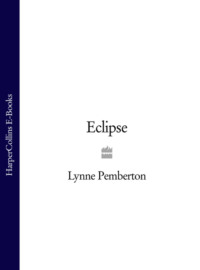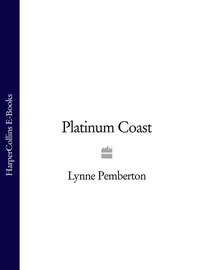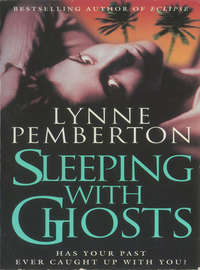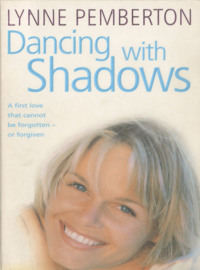
Полная версия
Sleeping With Ghosts
‘Not as far as you might think. Boats ply from South America through the Indies constantly, there are lots of small craft skippered by dubious captains who would not be adverse to taking on an unusual fare. Come on, Adam, think about it. Who would question a retired European living in the West Indies when there are literally thousands of them? The ex-pat brigade: the English with their gin and tonics, and the Yanks with their ridiculous cocktails.’
‘You’re right, anyway who cares how he got there; more important, we know he’s there. And he’s still alive.’
Mark nodded. ‘If our sources are correct, he has a rare form of bone cancer. Two weeks ago he went to the local hospital in St Lucia for a scan. Unfortunately for our suspect, an American doctor Ben Weitzman happened to be on a lecturing tour in the West Indies. Dr Weitzman, who is a bone cancer specialist, was asked to take a look at him. Ben Weitzman’s mother is a Holocaust survivor, you may have met her brother – Nathan Drey?’
Adam shook his head. ‘His name doesn’t ring a bell.’
Mark went on, ‘Nathan died a couple of years ago. He worked for the Centre when I joined in 1979.’
Mark blinked. Seventeen years. It seemed like yesterday. He had been twenty-six, a child of Holocaust survivors, and an ardent recruit to an organization he felt needed young blood, and new ideas. He had desperately wanted to rid the Horowitz Centre of its old image. An image he knew many people shared: that of embittered Jews, tormented by their time spent in the camps, obsessed with psychopathic cat-and-mouse games of hunting down anyone who had even a slight connection with the Nazis.
Mark Grossman, now Head of Intelligence, felt he had achieved his objective in some small measure, and hoped that the Centre was now recognized throughout the world for spreading an important message. Man’s inhumanity to man could not be ignored, and racial bigotry had to be addressed and punished, to ensure that what happened in Germany before, and during, World War Two never happened again.
Adam was speaking, intruding on his thoughts. ‘You were telling me about Nathan?’
‘Sorry, yes, I was miles away, thinking about when I first met Nathan. He was a good man, if a little fanatical, I suppose if you’ve lived through four years of Auschwitz, it kinda makes you that way. He helped to capture Eichmann, and for years he worked night and day on Von Trellenberg. Nathan was like a dog with a bone, he left no stone unturned. I would often come into the office in the early morning, to find him slumped over his desk sleeping. He’d been there all night. He was the one who tracked down Von Trellenberg in Bolivia in 1958. Nathan thought he had him then, but he was double-crossed by some local Argentine creep. Anyway both Klaus and the Argentine guy disappeared without trace. But Nathan had managed to get a couple of photographs of the man he thought was Klaus, and Nathan’s sister Anna positively identified him as Von Trellenberg. Anna and Nathan Drey were both born in Berlin. She was a celebrated concert pianist and composer before the war. Von Trellenberg knew her. Apparently he and his father had attended several of her concerts. She was interned in Bergen Belsen in 1943, and claims to have seen Von Trellenberg visiting the camp at least three times.
‘Anyway, to get back to the current situation, the man with bone cancer claims to be Dutch. Says his name is Van Beukering, from Rotterdam. Yet when questioned about Holland, he became very agitated and eager to leave. Then when Dr Ben Weitzman asked him where he was born, he reeled off a street name in Amsterdam, instead of Rotterdam. Weitzman then made an appointment to see him a few days later. First he called me here, and I arranged for his mother and one of my colleagues to fly to St Lucia. This Van Beukering didn’t turn up for the appointment. Ben’s tried to contact Van Beukering’s own doctor, but he’s on vacation overseas and we’ve been unable to locate him. The man gave a false address to the hospital, and so far we’ve hit a brick wall with all our enquiries.’ Mark sighed. ‘Nobody on St Lucia seems to have seen or heard of this guy. Meanwhile he’s disappeared into thin—’
‘Did Dr Weitzman see his hand?’ Adam interrupted.
Mark nodded, unable to contain the rising excitement in his voice. ‘Yes. Apparently that was the first thing he noticed; the third finger on his left hand was severed at the knuckle.’
Adam banged the top of the desk with his clenched fist. ‘That’s him! You’ve got him, Mark.’
‘Well, it isn’t absolutely positive yet, but I feel we’ve got enough to continue investigating. This is the closest we’ve come since Argentina.’
Adam, his fist still clenched in a tight ball, stood up and began to pace the small office. He was wearing what he always wore: jeans. Today they were black, teamed with a white shirt made by Bernie Katz in the finest lawn cotton, the same shirt-maker his father had used before him. And a pair of tan hide cowboy boots, custom-made from a firm in Houston. Mark could not recall ever having seen him in anything else and was, as always, struck by the image of an ageing rock star, rather than the reality of a successful international art dealer.
When Adam finally stopped pacing, he stood in front of Mark and said, ‘Argentina was close, I really thought you had the bastard then.’
A nerve began to tremor uncontrollably in Mark’s left temple. He massaged it with his forefinger, also thinking of the last time they had come this close to the man he had been hunting all these years. It had been in 1987, in a remote hill village close to the town of Santa Rosa, in Argentina.
Mark would never forget that night.
The sky was bigger than he could ever have imagined, and blacker, although rashed with stars. The frenzied animal screams breaking the stillness had caused his heart to race, and then came the wild tangerine glow – so bright it had hurt his eyes, lighting up the sky like a huge glowing torch that he thought would burn for ever. The stench of charred flesh in the burnt-out remains of the ranch would remain with him for the rest of his life. As would the despair he’d felt when he’d learnt that the bodies had all been local farm hands.
Mark stood up. He had pale eyes and pale skin, and an unruly thatch of thick, black hair. He ran his hands down the front of his crumpled navy blue suit and, straightening his tie, he listened intently to Adam’s next words.
‘I want to be there when you get him, Mark.’
‘If we get him. The bird has probably flown by now.’
‘He’s ill, he’s dying; he’s unlikely to be making any long journeys. No, I think he’s there in St Lucia. Hiding out somewhere. I’d love to go down there myself, I’m sure I could hunt him out of his fucking rat-hole.’
Mark Grossman shook his head, like a father to an errant son. He had a deep affection for Adam Krantz, and for his late father Benjamin who had been a patron of the Centre for many years. But Adam’s ambition was just not professional and it was more than his job was worth to allow it.
‘You know I can’t have that, Adam. Just supposing it is him – you know the procedure: we’ve got no official authority in the West Indies; we have to make an application to the St Lucian government for a warrant for his arrest and extradition. The local police resent intruders and can be very uncooperative. You’re too emotionally involved in all this; that could impair your judgement; you might take the law into your own hands. I don’t want to risk that liability. Von Trellenberg is a big fish, we can’t afford to screw up.’
‘Look, I promise to be a good boy, do exactly what I’m told, no screw-ups. I’ve always wanted to go to the West Indies and I’m due for a vacation. Come on, Mark,’ he pushed. ‘You owe me.’
Mark sighed and, turning away, he scanned the floor-to-ceiling wall of books in front of him, without seeing one title. Adam was right: he did owe him. Adam had helped a lot in the past, and not only with money. He had invested time and commitment.
Neither man spoke for several seconds.
Mark finally broke the silence. ‘You’re right, the Centre owes you and your father a lot. So now you’re calling in your dues; is that how it is? You’re putting me on the spot, man. I thought we were friends.’
‘We are, Mark, that’s why I feel I can ask. You know how important this is to me. I understand your position, but I’m begging you as a patron and a good friend to bend the rules for me just a little.’
The two men faced each other. Adam, although not unusually tall at five foot ten, towered above the diminutive Mark – who now relented. ‘If it is him, and we make a formal arrest, I’ll see what I can do.’
Adam smiled, then quickly composed himself, but not before the other man had seen a hint of triumph in his face. Mark rubbed the tip of his long nose saying cautiously, ‘I make no formal promises. Who knows, this man may not even be Von Trellenberg.’
‘How many other eighty-two-year-old Europeans with a severed finger can there be living in obscurity in the West Indies?’
Mark shrugged, his face impassive. ‘You know me, Adam, ever sceptical, it goes with the job.’
‘Yeah, I appreciate that. I know you’ve had your fair share of false alarms.’
‘Who doesn’t …’ Mark looked resigned, then added on a brighter note, ‘I’ll keep you up to date with developments as and when they occur, and now you really will have to excuse me. I’ve got to fly down to Washington and be back in time for dinner with the family. That is if I still have a wife and kids, I’ve forgotten what Victoria looks like.’
Adam gripped his hand firmly in farewell. ‘I feel very confident, Mark. Good vibes, you know what I mean? I really think that this time we’ve got the son-of-a-bitch!’
Adam left Mark’s office five minutes later, stepping on to First Ave and into glorious June sunshine. The light, blindingly bright, danced across acres of Manhattan glass, soaring into the china blue sky. A light breeze ruffled his dark hair as he hailed a taxi, asking for 76th and Madison.
Upper eastside was gridlocked, so he got out at the corner of 74th, strolling the two blocks to his art gallery. ‘Morning, Lenny,’ he waved to the street vendor, on the corner of 76th.
Lenny waved back. ‘It’s going to be a hot one, Mr Krantz, they say in the high eighties.’
‘You’ll sell more Cokes then.’
‘I wish I was selling on the beach in Bermuda!’
‘And I wish I was there with you,’ Adam smiled before walking on.
He stopped outside his shop, admiring the recently completed sign above the door: ‘Krantz Fine Art’. The gilded calligraphy had taken over a week to paint by hand and in Adam’s opinion looked much better than the previous ‘Krantz Gallery’ sign his father had designed in the early fifties. Benjamin had stubbornly refused to change it – insisting that his clients came to him not because of a fancy shop-front, but because he had a fine reputation as a dealer of the utmost integrity.
The gallery was cool, and there was a sense of calm in the hushed surroundings. At the sound of the doorbell, Joanne, Adam’s PA, peered from behind a pile of canvases.
‘Morning, Mr Krantz,’ she greeted him with a warm smile.
‘Morning, Joanne,’ he returned, walking past her into a small office at the rear of the gallery. ‘Any mail?’
‘Tell me a time when there isn’t any mail!’ Joanne said, joining him. ‘The usual circulars, bills, invitations, etc. And this.’ She picked up a letter from the top of the pile and handed it to him.
Adam’s eyes flicked briefly over the correspondence; a small nerve at the corner of his mouth twitched as he protested, ‘Some people never give up! How many more times do I have to tell this schmuck that I do not want to sell the Renoir.’ He screwed the letter into a tight ball and dropped it into the bin. ‘Write to this creep, tell him if he doesn’t stop bothering me I intend to take legal action for harassment.’
Joanne fished the offending letter out of the bin, and began to unfold it. ‘We may need this as evidence,’ she said practically.
‘Did Lynda Hamilton get back to you on the Degas etchings?’ Adam asked.
Joanne nodded. ‘Yep, she promised to call with a decision before close of play today and, before I forget, she invited you to a party next weekend at her house in Southampton. Sounds like a very smart bash.’ The last sentence was accompanied by a high-pitched whistle.
Adam leaned against the side of a desk. The expression on his face said it all. ‘Make sure you tell her I’m busy next weekend.’
Joanne chuckled. ‘Ms Hamilton is going to be mighty pissed, I think she wants more than your etchings.’
‘That’s the trouble, so do I. Lynda’s too old for me.’
‘Come on, Adam, she’s only a couple of years older than me, and that ain’t too old.’ The retort was hotly defensive.
‘Lynda Hamilton is at least ten years older than you, Joanne; she’s in her mid-fifties. She’s been under the knife several times.’
‘You sure?’ Joanne looked surprised, then before waiting for a reply said, ‘Well, she looks great for over fifty. Listen, if that’s what cosmetic surgery does for you, I’m going to start saving right now for my first lift.’
‘Don’t ever do it! All you’ll look like is an older woman who’s had surgery; it’s grotesque. Besides all that, Lynda Hamilton isn’t my type.’
‘Too rich, or just too available? Which is it?’
Adam’s warm eyes twinkled with amusement. ‘You, Joanne, are just too nosey.’ He emphasized the ‘too’ while touching the end of her nose.
Joanne blushed, dropping her eyes, raising them a moment later to watch Adam walk to his own office. He left the interconnecting door ajar and she sat down behind her desk, thinking that if she had wanted to be really pushy, she would have asked him just who was his type. Jennifer, his estranged wife? Elegant, cold, and more interested in money, and acquisitions than him. Or a certain Miss Daryl Harper, with her baby-face? Shit-face more like, Joanne thought as she pictured the archetypal spoilt playgirl, hell-bent on spending Daddy’s hard-earned cash in as short a time as possible and who, in Joanne’s opinion, was far too young, and not good enough for her boss.
Joanne’s mind wandered back to 29th January 1985: her first day working for Adam Krantz. It had been bitterly cold, with temperatures way below zero. She would never forget the cute way he had helped her out of her coat, warming her frozen hands in his own. Nor would she, or could she, ever forget the day a year later when she had bought a valuable Cézanne that Adam had previously rejected as a fake. Wildly excited he had swept her out to the Four Seasons Restaurant, for a celebratory supper. That night outside her apartment, Adam had held her very tight and thanked her, then to her astonishment he had kissed her full on the mouth before saying goodnight. With her heart fluttering, she had stood very still watching him walk to the end of her street, where he hailed a cab. Her eyes did not move until the tail-lights were out of sight. Later with her heart still fluttering, she had fantasized about making love to Adam Krantz. And she still did, though not as often now, by shutting her eyes tightly, opening her legs, and allowing her husband to slip silently into her body.
Adam sat down behind his desk; his palms spread flat, he moved them slowly across the smooth maple wood surface, thinking how much he loved fine things. The early nineteenth-century English antique desk gave him great pleasure, as did the breakfront bookcase – English again, but slightly earlier than the desk – and a pair of eighteenth-century French chairs. A set of Lautrec etchings and a large Pissarro landscape filled one wall and the remaining space was painted with a blue wash. When he had decorated his office two years previously Joanne had described the colour as ‘Wedgwood’, but it looked paler to Adam, more like the colour of very faded denim. The large room, pristine and sparingly furnished, was a testament to his dislike of clutter.
Joanne jotted something down on her notepad and, without looking up, called through the open door. ‘Remember you’ve got to call Martin Beck at Sotheby’s, and Alain Turquin in Paris about the Manet.’
Adam picked up a pencil from a selection stacked in a Tiffany silver box, a gift from his mother for his fortieth birthday last year. He jotted both names on a pad, even as Joanne’s voice drifted through once more. ‘And don’t forget you’ve got to pick Calvin up today, and whilst I’m on the subject, it’s his seventeenth birthday in two weeks.’
Adam looked exasperated. ‘Give me a break, Joanne, I do know my only son’s birthday.’
‘OK, OK.’ She raised her hand as if to ward off a blow. She was tempted to remind him, that she had reminded him of all of his family occasions for the last ten years. ‘Keep your shirt on, Mr Krantz. You know me, just being efficient.’
His tone softened. ‘I’m picking him up at four this afternoon. I’ve decided to drive myself, so I plan on leaving here around two.’
Joanne appeared in the doorway. ‘No problem, it’s pretty quiet here on Friday afternoons usually; anyway, there isn’t much ever happens around this place that I can’t take care of.’
Adam raised both hands. ‘What on earth would I do without you?’
‘Well, don’t forget I told you I need a vacation. I haven’t been away for a couple of years, and these old bones could do with a dose of sun.’
Adam was dismissive. ‘Did nobody ever tell you too much sun is bad for the skin?’
‘It’s worse than not enough, and I haven’t had any.’ She planted both hands on her wide hips, and fixed what she hoped was an appealing smile on her mobile face. ‘A week in Maui, David got us a deal.’
Adam looked up and she sensed his irritation. Her instinct was confirmed by his next announcement.
‘Maui sucks, ask anyone. Unfriendly natives trying to rip off unsuspecting American tourists. Anyway, it’s the rainy season, there’s no sun, you and David are better off staying in New York.’
Joanne pulled a long face and in a plaintive voice said, ‘But I’ve always wanted to go to Maui. It’s a great deal, eighteen hundred dollars all inclusive.’
Adam leaned back in his chair. ‘David got it cheap ’cause it’s the wrong time of year. Like I said, go in the winter.’ His tone was dismissive.
Undeterred, Joanne persisted. ‘Come on, Adam, give me a break; hell, I’m whacked and I need a vacation. If I don’t get one, you’re not going to get the hundred and fifty per cent input I give to this business.’
‘When?’ Adam asked.
‘Next week?’ Her eyebrows rose, accompanied by a pleading expression that filled Adam with guilt. He knew he was lucky to have Joanne. She had majored in Art History, and had worked as a restorer for six years. She had a catalogue in her head of every art collector and artist from Albani to Zoffany, and could spot a forgery a mile away, but more important she tolerated his unpredictable personality with consummate patience. In truth she was his right hand and he would be lost without her. He made a mental note to book a vacation in Maui for Joanne and her husband, just as soon as this thing in the West Indies was over.
Adam rubbed his hand across his face and sighed. ‘You’re right, Joanne, you do need a vacation. You and me both, but I think I’ve got to go away next week. On business,’ he added quickly. ‘I’m not sure yet, so can we talk about it later?’ He looked and sounded genuinely sorry.
The smile slipped from Joanne’s face, her tone changing to one of resignation. ‘OK, you’re the boss; but I’ve got to let David know before the end of the week, or he’ll divorce me.’
‘He’d be mad to do that.’ Adam was smiling warmly.
‘Yeah, right. But you know men, never appreciate what they got, till they don’t have it no more.’
‘Point taken, Jo. I promise to let you know just as soon as I know. Now can we get some work done around here. First and foremost, call Lynda Hamilton and get me out of that party. Tell her I’ve got to go to—’
‘Maui?’ Joanne offered. Then before he could reply, she added, ‘Don’t you think you should consider the sale of the Degas, Adam? One little-bitty party ain’t going to kill you, sometimes in life we all have to make a few small sacrifices.’
‘Sacrifices for what?’ Only half listening, he racked his fingers through his shoulder-length hair whilst thinking about that trim he kept promising himself.
‘Money, you know, like sixty-five thousand dollars’ worth of sacrifice, the profit from which pays my wages for—?’
‘A month,’ he finished for her.
‘I wish,’ she said, raising bushy black eyebrows that met at the ridge of her nose. Adam had often wondered why she didn’t pluck them but had always been too polite to ask.
‘Joanne, believe me when I say no amount of money would induce me.’ He sighed heavily, running the back of his hand across the dark stubble on his jaw, remembering that he had forgotten to shave that morning. ‘Come on, you know as well as I do that it’s not just the party. Lynda’s bony ass could be studded with twenty-carat diamonds and she could want to buy an entire collection of Impressionists … but I absolutely refuse to get laid by her.’
There had been a multiple pile-up on Route 87, and traffic was at a standstill. Adam, stuck on the George Washington Bridge, looked at his watch and cursed. The drive upstate to Albany took at least two hours on a clear road.
He arrived at his son’s school after five, over an hour late. Sprinting up the wide stone steps leading to the entrance to Highclare Academy, he could see the back of Calvin’s head framed in the open window, his dark crown shining like polished jet.
Calvin turned when his father entered the hall.
‘Sorry I’m late, Cal, but there was a hold-up on the New York Interstate. It was chaotic.’
There was no welcoming smile for Adam, nor did his son move towards him when he said, ‘It’s OK, Dad. I’m used to it, you’re always late.’
‘Always! Come on, that’s not fair.’
Calvin looped a lock of wayward hair behind his left ear. His sapphire blue eyes, almost exactly the same shade as his mother’s, challenged Adam, reminding him of Jennifer when she was angry. ‘OK, I’ll give you sometimes.’
Adam stepped forward to touch his son’s arm, changed his mind and cuffed him playfully around the chin instead. Pulling a ridiculously long face, he said, ‘No smile for your old pop?’
Calvin started to grin, his bad temper melting like butter in the sun. He could never stay annoyed with his father for long.
Gently Adam hugged Calvin towards him. ‘It’s great to see you, Cal; how have you been?’ He ruffled his son’s long hair.
‘It’s great to see you, Dad; I’ve missed you.’ It felt good to hold his father close. Calvin wanted to savour the moment, enjoying the slight prickle of Adam’s stubble and the faintly acid smell of lime, and something else he didn’t recognize.
After a few seconds Adam relaxed his embrace then, holding Calvin at arm’s length, he looked him up and down in appreciation. ‘Wow! You’ve grown in the last month, nearly as tall as me. And man, what a great tan! You look like you spent the last few weeks at the beach.’
‘I wish,’ Calvin grinned. ‘Misspent time playing ball.’
‘Oh, yeah, how’s it going? Sorry I missed the last match, I was in Europe. Your mom said you were great, and that you made captain.’ Adam patted his son on the back, he was beaming with pride. ‘Congratulations, Cal; you put your dad to shame, I can barely hit the ball.’
Warmed by his father’s approval, the sullen expression Calvin had worn earlier was replaced by a radiant smile.
Adam wrapped an arm around Calvin’s shoulder. ‘Come on then, son; let’s hit the road.’
Arm in arm they walked to the car. Calvin peered inside. ‘No driver today, Dad?’ he asked, opening the passenger door.
‘Nope, I felt like being alone, lots of stuff on my mind. It seemed like a good opportunity to sort it out.’
Cal searched his father’s face. ‘And have you?’






